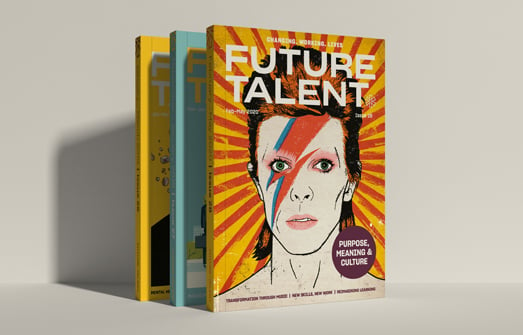The need for new skills in the workforce has accelerated post-pandemic, with emphasis on ‘soft’ skills to deal with change.
Even before the advent of the COVID-19 crisis, rapid technological advancement and new ways of working were disrupting jobs and the skills employees need to do them. In 2017, the McKinsey Global Institute estimated that as many as 375 million workers—or 14% of the global workforce—would have to switch occupations or acquire new skills by 2030 because of automation and artificial intelligence.
PwC’s 23rd Annual Global CEO Survey, conducted in 2020, highlighted employers’ continued unease around skills, with 74% of respondents “concerned” about the availability of key skills. Of those, 32% said they were “extremely concerned”. But the organisations which have focused on expanding employees’ skills were more confident about future business growth.
A key insight from PwC’s research is the need for organisations to build transferable skills that will continue to remain relevant and therefore useful, however technology, automation and digitisation may alter the future of the workplace.
A need for transferable skills
At the Future Talent Learning Conference on Transforming Skills and Inclusion, a panel of education industry experts and employers considered the skills required for the changing world of work and how these can be nurtured among young people about to enter the workforce.
While the pandemic has arguably put a pause on the development of key employability skills within schools, Kirstie Mackey, Director of Citizenship & Consumer Affairs at Barclays UK, highlighted the need for greater emphasis on transferable skills by both employers and educators. “Employers need to define what skills they are looking for so young people can work on developing these accordingly” she says. “We can’t predict what jobs will exist in the future, so we have to focus on a set of core transferable skills.”
Barclays Lifeskills, an initiative designed to inspire young people and equip them with the key skills to move forward into the 21st century workplace, has identified seven core transferable skills that it believes are crucial to success in the future workplace: leadership, communication, problem-solving, adaptability, creativity, resilience and proactivity.
“We can’t predict what jobs will exist in the future, so we have to focus on a set of core transferable skills”
“Having the right mindset, encouraging curiosity and adapting an approach which promotes lifelong learning are crucial in this fast-changing world of work,” Mackey adds.
Building the skills to thrive amid uncertainty
Fast forward to 2021, and McKinsey’s latest Global Survey on reskilling shows the proportion of companies addressing empathy and interpersonal skills doubled in 2020. ‘Human’ skills such as influencing, persuading and social understanding have become disproportionately valuable. Living in an age characterised by uncertainty, people need the emotional intelligence to thrive; in today’s fast-paced workplace, they must excel in communication, decision making, critical thinking and self-awareness.
For panellist Craig Fenton of Google, upskilling and reskilling individuals in these areas is a business imperative. “To keep up with changes you need to be able to innovate, so you need an environment where experimentation thrives. You need a restless culture where everyone embraces a collective will to retrain, reskill and be better tomorrow,” he suggests.
"Living in an age characterised by uncertainty, people need the emotional intelligence to thrive"
This requires psychological safety, permission to fail and freedom to experiment. “The best form of upskilling comes by doing, so you need an environment where failure is welcomed and not punished.
“Above all, we need to tap into the human skill of imagination. Humans can imagine a future different from today and go create it. Alongside this, one of the most important skills we need to nurture is creativity – those with the ability to see around corners. Creativity is a superpower.”
Why creativity is essential
In its 2020 analysis of hiring trends, LinkedIn found the most in-demand soft skill to be creativity. As technical tasks become outsourced to computing and AI, it is the ability to see things differently and to connect the dots in new ways that will distinguish great companies from good ones.
This was the theme of Margaret Heffernan’s Future Talent Conference session, in which the author argued that our quest for ‘certainty’ has had a stifling effect on creativity. This must be addressed urgently if we are to succeed in the future.
“Expertise cannot always keep up because the requirements keep changing,” she said.
“So that means that most of our management tools and the beliefs that underlie them are no longer useful. We need a different model of leadership and a different model of work.”
Agile leadership is required now more than ever. To loosen the “creative block” that so many companies encounter in the quest for innovation and futureproofing, workforces must be comprised of individuals who are open to new possibilities, highly alert, deeply observant and above all, able to harness collective intelligence and sense-making. “We can see more, solve more and do better collectively than independently,” Heffernan believes.
"Agile leadership is required now more than ever"
From a leadership perspective, those who are adept at creating and convening diverse groups of people who are truly different from one another – not only through ethnicity, but in skills and lived experience – are critical. Leaders must be unafraid to respond and adapt “in the moment” to the world around them, as well as being good listeners, understanding the role of conflict, debate and ambiguity.
In essence, Heffernan encourages us to embrace two different skills now for a successful future. Firstly, to think deeply about preparedness. “We must be willing to invest in people, projects and infrastructure just in case, rather than as a last resort. In an age of uncertainty, planning doesn’t go away, but it has to be underpinned by preparedness,” she says.
Secondly, nurturing the human skill of creativity. “People are capable of exceptional courage, solidarity and ingenuity under great pressure,” she says. “In an age of uncertainty and crisis need to be prepared by having eager, enlisted and committed individuals on hand; ready to bring their ingenuity, empathy, compassion, inventiveness, curiosity and resourcefulness to the completely unexpected.”
"Leaders must be unafraid to respond and adapt “in the moment” to the world around them"
She calls on leaders to seek “all the skills that don’t typically show up on CVs” and treat them as long-term necessities. “We must recognise that these skills cannot be boiled down to formulae and recognise that creativity won’t be categorised is what give it its force, adaptability and resilience. We don’t know the future, so the one thing we need to do now is cultivate human imagination and develop it in the organisation, people, culture, places and language that support it.
“Creativity exists everywhere. The creativity organisations will need in a deeply uncertain future and the capacity to respond brilliantly isn’t in a standard sized box, but it is out there, ready and willing to confront the unknown.”
View all the Future Talent Learning 2021 conference videos on Transforming Skills and Inclusion by clicking the button below:

















